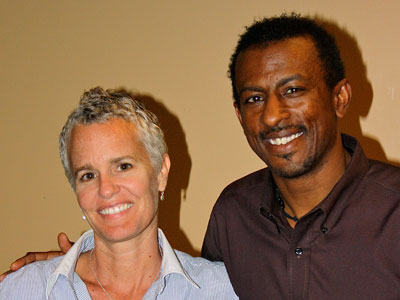America is a place where the phrase “United we stand, divided we fall” rings true. However, faith and race have created an interesting division within politics since the country’s beginnings. At the most recent Hennebach lecture, Nancy Wadsworth, the Assistant Professor of Political Science at the University of Denver, spoke about connecting faith and race in American political life.
E Pluribus Unum – Out of many, one, this is one of the core ideas behind the “American Dream.” The hope was for America to be a place where people from all different backgrounds could come together equally and be a part of a larger whole, but problems ensued almost immediately. Wadsworth points out that religious diversity was not agreed on by the founders and there was even opposition to the first amendment that would protect diversity. “Religion was central to the nation’s founding, diverse religions were not.” This sharply opposes present day where religious freedom is virtually sacred.
Wadsworth brought the discussion to the present and the claims that President Obama is a Muslim. Those making these claims typically assert that President Obama is not American enough and not Christian enough, or sometimes, ironically, too Christian in his agenda. These claims seem to be a way for people to justify the President’s lessening popularity, but the question remains, why would a Muslim religious affiliation be reason enough to justify a lessening opinion? Wadsworth explained, “Historically, the definition of ‘Americans’ to an individual isn’t defined until it is challenged.” This ‘challenge’ came on September 11, 2001.
Prior to 9/11, there were plans to create a Islamic community center blocks away from the World Trade Center. After the attacks, heavy protesting surrounded the ongoing construction of the community center. The reasoning behind this appears to surround the stereotype of Muslims. In the American context, Islam is seen as one of the religions most stereotyped by race. It is seen as the opposition to American Christianity, non-white, and is often reduced to being “Arab.” These generalizations are then further reduced to terrorism because of 9/11.
Wadsworth asked, “Who is the ‘we’ that feels injured by the building of a Muslim community center blocks away from Ground Zero? Is it the ‘racial we?’ Or is it a ‘religious we?’” In the post-9/11 times, the WTC site has become sacred and an Islamic center near it is seen as offensive to all of the lives lost. What the protesters seem to have forgotten is that the WTC itself contained a mosque and was the workplace of a large number of Muslims who also lost their lives. Instead, people equated the attack on the WTC to an attack on Mecca. Wadsworth explained these feelings of resentment, “Religious minorities tend to fare well in the US until they are perceived to threaten the ‘center.’”
Following this statement, Wadsworth explained what she meant by the ‘center.’ “The complex story of religion in the US cannot be told apart from its racial context.” Race is central to religion’s historical and demographic development and historically, religions in the US were white. The big three, or ‘triad,’ of religions in the US during most of its development were Protestantism, Catholicism, and Judaism. All are predominantly white religions. The entire notion of civilization in our country was seen as what was “Christianized.” Freedom of religion was always very divided by race and it only applied to some, typically the majority.
Wadsworth finished by pointing out that the center is imaginary. “The center is a myth, but one of the most politically powerful fantasies in existence. It isn’t objectively the reality, but a story told to be effective.” Once the idea of a center is eliminated, it allows for the real diversity, both racially and in religion, to make a place in American politics independently of one another.



'Race and politics continue to drive American history' has no comments
Be the first to comment this post!